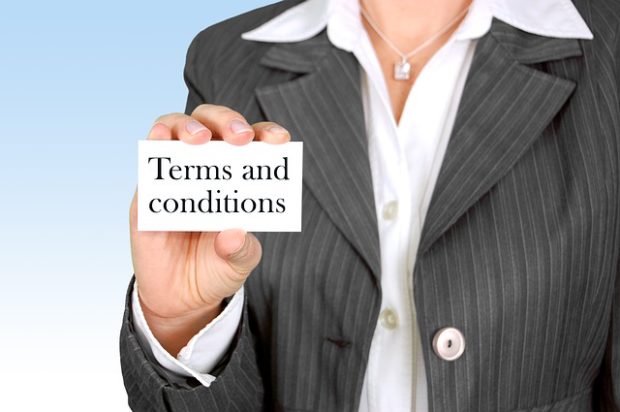7 Things You Need to Know When Signing an Employment Contract

If you’ve just been offered a job and been presented with an employment contract to read over and sign, first of all, congratulations! A new job is always an exciting journey to embark on. However, before you sign on the dotted line, there are a few important things you might want to consider.
Naturally, you’ll want to make sure that everything is in order. Consider having a labour lawyer review your employment contract if you have no experience in what to look for, to avoid any serious unpleasant surprises.
With or without legal assistance, here are some important things you need to keep in the back of your mind while reading through your contract before you agree to anything.
Legalities
Of course, a contract is legally binding, which means you need to pay close attention to the legal stipulations you find within it. Consider all the roles and responsibilities of both parties – your employer and yourself as the employee.
Make sure you understand the gritty details of what will happen if things go wrong – such as in the case of clauses being breached, getting injured at work, being mistreated, or being harassed, etc. In these cases, you’ll want to make sure you’re in touch with a good law firm like Lamber Goodnow to assist you through the processes.
Job Title and Description
This one is crucial, you need to know what you’ll be doing for the company. Having a clear-cut understanding of exactly what will be required of you on a daily basis is a pretty important part of your new job. Make sure that the job title and description are detailed, specific and make sense to you. Ensure that the list of responsibilities matches up with what was listed in the job listing and aligns with what was discussed during the interview process too.
There might be tasks you’re unsure of or feel uncomfortable with, in which case you need to speak up. If you have questions about your roles or workload, don’t be afraid to reach out to your future employer to ask questions.
Work Hours
Similar to the job description, your stipulated work hours will have a major impact on your day-to-day life, so you need to be clear on what they are. Certain jobs might require that you work weekends, and evenings, work overtime, travel a lot or be required to work strange hours on short notice. Make sure that you’re aware of the setup and whether or not you’re happy with it and willing to comply.
Your work hours should always be fair and your contract needs to account for time off throughout the week, as well as longer breaks during the year, since a healthy work-life balance is important for productivity and mental health. The topic of leave will also be discussed in more detail.
Compensation and Benefits
Make sure that the salary being offered to you is in line with what you agreed on during discussions with your employer, and that you find this compensation to be fair based on your qualifications, experience and the hours and workload you will be dealing with in accordance with the responsibilities listed in the contract. Make sure you understand when you will be paid, how often and via which methods as well.
Further, you should make an effort to find out about any additional benefits such as health insurance, a pension fund, a company car or annual bonuses. If these are not in your contract, don’t be afraid to bring it up with your future employer.
You might also want to check for any information regarding reimbursements on travel fees when you’re required to drive or perhaps travel long-distance for work.
Work Location
On the note of travel and location, you might want to make sure you’re clear on where you will be working. This is particularly important since 2020, since many employers now prefer for their employees to work remotely. Some companies employ a hybrid model where employees spend some time in the office and the rest of their time working from home.
Discuss this with your employer to find out how their company likes to run things and what will work best for both parties. If working in an office environment is important for your productivity, broach this with those in charge. On the other hand, if working from home on a regular basis will benefit you more, find out whether this could form part of your agreement.
Leave and Time Off
We’ve already mentioned the importance of time off. You should have at least one day off work during a week, and further be allowed paid time off.
Typically, within an employment contract, you would be assigned a prescribed amount of leave days for various reasons: sick leave, annual leave, family leave, maternity leave, etc. Make sure you’re familiar with this and understand whether or not your leave will build up over years or if you’ll have to take your leave days within a designated span of time.
All of this information will become important when you find yourself in an emergency or want to book a holiday.
Term of Employment and Dismissal
Every contract has a term – the period from the start to the end. Check what the document says about when your employment term will end, and what that might mean in terms of renewal, termination, etc.
You should also make sure that you’re clear on both your rights and your employer’s rights when it comes to an early ending of your employment contract. Typically, your employer won’t legally be allowed to simply dismiss you with no good reason, and you will also have to provide a notice period should you decide to resign – make sure you know what that period is!
Conclusion
Before signing an employment contract, it’s important to look at things with a clear mind and not let your excitement cloud your vision. Look out for the above-mentioned details in your contract and understand them clearly before signing anything.


